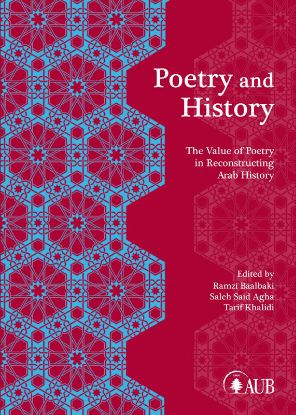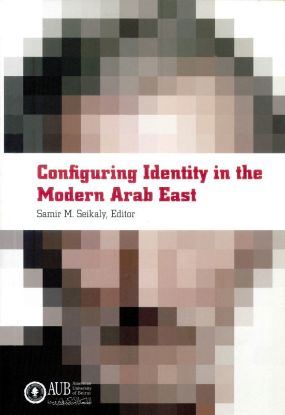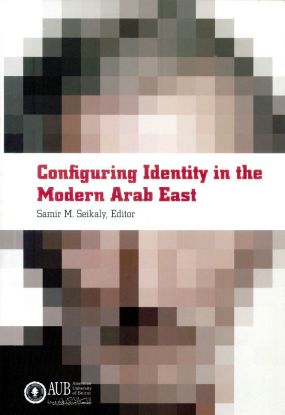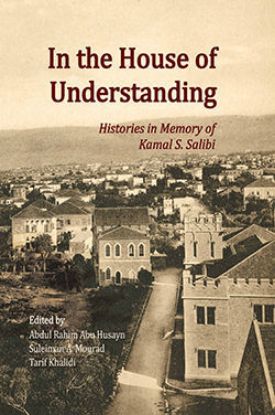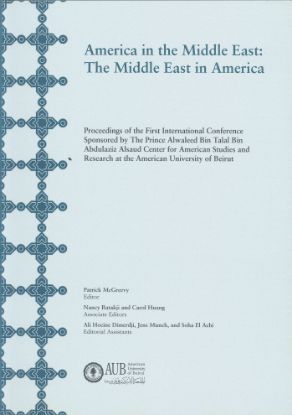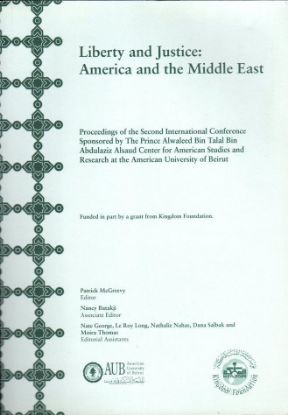Filter by price
Products tagged with 'papers'
Poetry and History: The Value of Poetry in Reconstructing Arab History
This is a collection of papers presented at a 2008 conference sponsored by the American University of Beirut's Sheikh Zayid bin Sultan Chair of Islamic Studies of the Center for Arab and Middle Eastern Studies and the Margaret Weyerhaeuser Jewett Chair of Arabic of the Department of Arabic and Near Eastern Languages. The volume includes sixteen articles by scholars from the United States, the United Kingdom, Germany, and Lebanon, and is divided into two parts: the first dealing with classical and premodern poetry, and the second with modern and contemporary poetry, with three articles focusing on the work of the poet Mahmoud Darwish. It serves to better illuminate some aspects of the relationship between the fields of poetry and history, and represents a significant contribution to the field of Arabic and Middle Eastern Studies.
$30.00
Configuring Identity in the Modern Arab East
This is a collection of papers from a conference entitled “Political Identity in the Arab East in the Twentieth Century," hosted by the Center for Arab and Middle East Studies of the American University of Beirut. Scholars and students alike with an interest in the Middle East will find the topics treated, the perspectives adopted, and the conclusions of continuing interest and pertinence. The volume includes contributions from the following authors: Ahmad Dallal, David Commins, Thomas Philipp, Samir Seikaly, Rashid Khalidi, Fred Lawson, Aziz Al-Azmeh, Roger Owen, and Hazem El-Beblawi.
$10.00
Configuring Identity in the Modern Arab East - Hard Cover
This is a collection of papers from a conference entitled “Political Identity in the Arab East in the Twentieth Century," hosted by the Center for Arab and Middle East Studies of the American University of Beirut. Scholars and students alike with an interest in the Middle East will find the topics treated, the perspectives adopted, and the conclusions of continuing interest and pertinence. The volume includes contributions from the following authors: Ahmad Dallal, David Commins, Thomas Philipp, Samir Seikaly, Rashid Khalidi, Fred Lawson, Aziz Al-Azmeh, Roger Owen, and Hazem El-Beblawi.
$15.00
In the House of Understanding: Histories in Memory of Kamal S. Salibi
Kamal Salibi is primarily renowned for his monumental contributions to the history of Lebanon. Yet his scholarly legacy extends well beyond Lebanon to topics that span the Middle East from biblical to contemporary times. This collection of twenty-three papers, written in Dr. Salibi's honor and memory, similarly covers a range of subjects that touch upon his interests. They include aspects of ancient, medieval, and modern Arabic/Islamic and Middle Eastern history, literature, and art, and are arranged in four sections: (a) Kamal Salibi as Teacher and Historian; (b) Lebanese, Ottoman, and Arab History; (c) Islamic Studies; and (d) Syriac Studies.
$24.00
America in the Middle East: The Middle East in America
This volume expresses a range of perspectives through twenty-eight papers organized into seven thematic sections: American's Orient, Gendered Encounters, the Middle East in America, US Power and US Policies, Messianic Encounters, Encounters in Writing and Landscape, and Faces of American Studies. This book results from the proceedings of the First International Conference Sponsored by the Prince Alwaleed Bin Talal Abdulaziz Alsaud Center for American Studies and Research at the American University of Beirut.
$10.00
Liberty and Justice: America and the Middle East
These thirty-four papers, explore the many ways that notions of liberty and justice have informed current and past encounters between American and the Middle East and North Africa. The contributions include various perspectives, including literature, film, foreign policy, education, religion, and human rights. This book is the result of the proceedings of the Second International Conference Sponsored by The Prince Alwaleed Bin Talal Bin Abdulaziz Alsaud Center for American Studies and Research at the American University of Beirut.
$10.00
- 1
- 2

